
The air clogged my nostrils, smelling of wet vegetation and cow dung. I sit on the slopes of the green field, inhaling nature’s fragrance, as the sea breeze gently caresses my sagging cheeks—manoeuvring past my nostrils. The elephant grass dances elegantly to the fine tunes of the wind, like a woman’s waist. Pa says it is an act of worship, they are the protectors of the earth. At night, they become six feet tall with slender green arms covered with spines, waiting to gnash at intruders, like me, he said. Pa and I were the field’s only guests, aside from the herdsmen and their herd.
Like the acclaimed intruder that I am, I am at the fields alone, in consternation, away from camp. As groups of herdsmen take turns on the field, I watch closely, trying to decipher their strange language. Whipping cattle causing a divergence, their humps in synchrony to the rhythmical movement of every whip action. The herdsmen look alike. Skinny, scarecrow-like, grasping their raffia woven hat from escaping their pea-shaped cranium; amidst gaining balance from the winds centrifugal action. The cattle remain subservient, in exchange they frenetically swing an awkwardly shaped wooden stick over their heads, chasing the skewer of egrets seeking shelter on the humps of the cattle. Pa says they are oblivious to their true form, he says they are wings of cattle. They are the flying cattle.
My walk back to camp is a short one. I stop to read the sign as always:
A PLACE FOR ALL, NO WORRIES FOR YOUR LORRIES.
“Lorries were used to transport people to various camps during the war. People whose homes were lost, people who wade the earth in search of shelter and their loved ones. This is redemption for them. No worry for your lorry, humans. Humans cramped like sardines. They called themselves the “lorried” ones. Before you ask child, we were not in a lorry, we are merely travellers.”
Pa told me tales of the lorried ones, tales of the lorry skidding and people tumbling over, crushing brittle bones. The abandonment of the injured, the sick—for the jaws of war to clench on.
Camp, a picture of faded hopes, lingering souls far from home, seeking refuge. Clusters of aluminium constructed buildings, adjacent to one another, indented in the depths of the earth. The tents provided were getting swallowed by the earth, washed away by the aggressive cries of the clouds. Behind each building is a false drainage system, emptying its contents like a nauseous infant. A pictorial example of garbage in, garbage out.
“Everyone here is a walking shadow. We are all dead, living is a painful sacrifice. You could leave and still feel dead.”
The only erected brick building is the health care centre, responsible for providing more entertainment and food than health. People are permanently clustered outside in need of medical attention. Some as a ruse to watch television. Pa says you wait to die, easiest population splicing.
The television is in the centre’s common room. Pounds of flesh gather for visual excitement. Chants could be heard reverberating from the building, its firmness is still a mystery. We sit on the cold cement floor, as it sends freezing impulses to our brain. Squeezing our buttocks, cutting off blood supply but our thirst for the outside world is fervent. Pa says it is a waste of time, the field brings him all the pleasures of the world.
“The flesh is irrevocable. You smell your skin rot but your remain insouciant. The price you pay for being human; for the ownership of your flesh.”
Pa says his era was devoid of entertainment from a four-cornered talking machine. Pa says he rather stayed close to his fathers on the field, so should I—when he is finally gone. Pa says my fathers and their fathers are the flying cattle.
After many reiterations, I have condescended to Pa’s demise and have reached an evocative finality in acquiescence of his absence. I still find it rather impertinent to refer to him in the past tense. I am at peace now feeling Pa’s presence amidst his absence. Pa says when a man breathes his last, he joins his predecessors in worship of the earth, like the elephant grass, like the flying cattle.
“My Pa used to tell me stories about the flying cattle and so did his Pa. I have but little time left, my limbs yearn for the soil, they yearn to be amongst their kind. I am passing my last tale to you. The moon is at its crescent, the nights cold sending singing birds mute, children seeking warmth from their mothers. The elephant grass in worship to the direction of the wind. They are tender, scented yet their sharp-edged cut deeper than a butchers knife. The gods chose well. In the dead of night, the wind stops its chattering, the elephant grass halts their propitiation. They emerge from the thickest portion of the fields, wings as wide as mahogany canopies, forming a shield for the fields. Their footprints could be seen around each household the next morning, children perplexed over the strange imprint. It was believed that they descend whenever one sends for them, whenever they are missed.”
“Would you also descend, to see me?” I asked in dire need of a response. Trying to gain his balance sitting on the rigid surface, he embraced me; yet fading right in front of me.
“If I am missed.” He smiled imperceptibly.



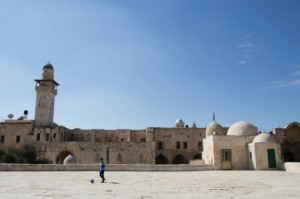
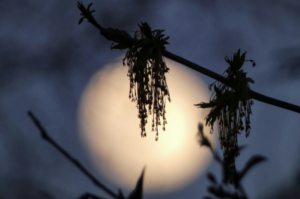
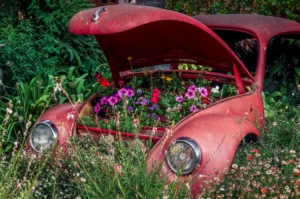
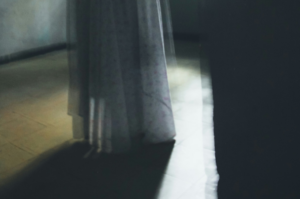

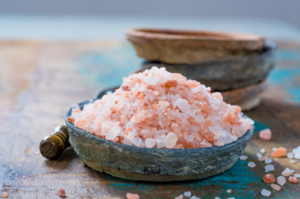

Muiz Opeyemi Ajayi August 27, 2021 17:45
Fluid narration. I love it.